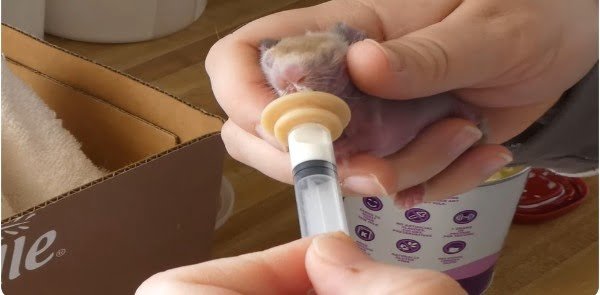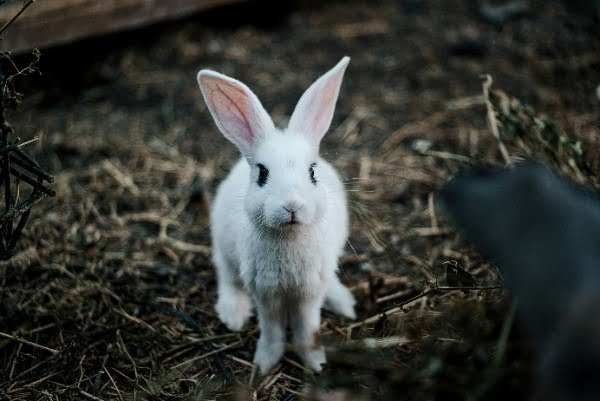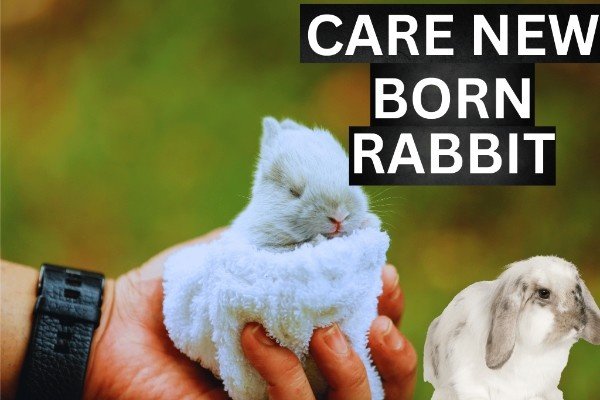Newborn Rabbits Care Guide
There is no better feeling than welcoming a group of newborn rabbits into your home. However, it is challenging as it is a great responsibility. Proper care during the initial stages of their lives is a key factor in their overall health. The following comprehensive care guide provides information on everything you need to know about how to care for a newborn rabbit correctly. From understanding the stages of development of newborn rabbits to creating a conducive environment and catering for their specialized dietary needs. To make sure your rabbits get the nourishment they require, you may find out more about which best vegetables for rabbits. Pet Care is essential for their health and well-being.

Understanding how to care for a newborn rabbit:
Rabbits are born blind, deaf, and virtually helpless. However, kits grow and change rapidly during their first few weeks of life, and understanding what to expect is crucial”. From their survival as a newborn to their development into young rabbits, each stage in between is an opportunity to accomplish specific observations and requirements. It is also important to become familiar with health issues that might arise, as identifying problems early can result in effective treatment and a better prognosis. Proper nutrition is also essential during the newborn period as nutrients are balanced to aid rabbits’ high-speed development.
Housing and Environment:
Newborn rabbits need a conducive habitat to grow into healthy animals. This includes a warm and safe environment that protects them from predators in their growing phase . A good environment should be large enough to keep the young ones safe as they grow. The room should have temperature and humidity control devices to ensure the optimal environmental conditions for the young ones. The room should also have the best beddings for the newborns that support their growth while keeping them warm and preventing infections.
Feeding and Nutrition:
Neonatal rabbits are nourished almost entirely by their mother’s milk for their first several weeks of life. Supplementation with milk replacers that are specifically made for rabbits is necessary if the doe cannot nurse or is unresponsive. To ensure that the kits receive adequate nourishment, as well as optimal development and growth, a feeding regimen should be established, and the proper amounts determined to meet their nutritional demands. Gradually introduce solid foods as the rabbit matures to guide them to a diet suitable for young rabbits.

Caring for and Bonding, with Newborn Rabbits:
It’s important to handle rabbits to earn their trust and keep them calm. By showing them care and affection on you can establish a connection with the little ones. Regularly spending time with them. Helping them get used to interactions is vital, for their emotional health and growth. When introducing rabbits to each other a gradual approach can encourage relationships and prevent potential conflicts from arising.
Caring for and Bonding, with Newborn Rabbits:
Rabbits’ health is well taken care of the making regular visits, to a vet to check on their health is important, as perfect surveillance from diseases and parasites to protect them from their risk, clean living space, and quick handling of any injuries and sickness, this will promote their well-being and a tender long life.
Preparedness, for Emergencies:
It’s crucial to be ready, for emergencies when looking after baby rabbits. Being able to spot signs of trouble or sickness and acting quickly can greatly impact their chances of survival. Keeping an aid kit nearby and knowing how to provide care for common injuries can help stabilize the little ones until expert help arrives.. In situations requiring aid having the contact details of wildlife rescue groups or skilled vets can prove extremely valuable.
Growth and Development:
Tracking how the newborn rabbit is doing and there is need to maintain constant follow-up to determine growth and development. There is a need to wean the rabbit with time and exposure to some foods that suit young rabbits. The feeding should be adjusted as the rabbit grows and change of habitat may be necessary.

Additional Resources and Support:
There are many resources where one can find additional information and support in caring for newborn rabbits. A plethora of websites, books, and rabbit care forums can be of use. Local rabbit care communities and organizations are a great source of advice and support. Professional rabbit care services and rabbit experienced veterinarians can provide expert advice and help.
conclusion:
Caring for rabbit’s newborn requires dedication, knowledge, and compassion. With this guide to help, you can be able to understand the unique needs of the kits and provide the nurturing environment they deserve to grow up healthy and happy. Also, you should always focus on their welfare and seek assistance when necessary. Whenever you offer proper care, I am optimistic that you will enjoy the pleasure of seeing these cute kits growing and developing into robust and healthy rabbits. You make sure you’re prepared to give your how to care for a newborn rabbit by using this resource.
FAQ
What should newborn rabbits be fed?
First of all, newborn rabbits need their mother’s milk. However, in situations where the mother is not around, it’s better to consult a vet for suitable milk replacers.
The kits should nurse frequently throughout the day and night. When hand-feeding, the milk replacer comes with directions, but it’s usually every few hours.
How often should I feed them?
When picking them up, always use both hands to support their body. Don’t hold by ears or scruff
